
The administrative units of Pakistan refers to the subnational administrative divisions that play a role in the governance of Pakistan. The country is composed of four provinces and one federal territory: the provinces of Balochistan, Punjab, Sindh, Khyber Pakhtunkhwa, and the federally-administered Islamabad Capital Territory. Additionally, Pakistan also administers two autonomous territories in the disputed region of Kashmir: Gilgit−Baltistan and Azad Jammu and Kashmir. Due to the ongoing Kashmir dispute with neighbouring India, it also claims sovereignty over the union territories of Ladakh and Jammu and Kashmir, but has not exercised administrative authority over either region since its independence and subsequent war with India in 1947–1948. All of Pakistan's provinces and territories are subdivided into divisions, which are further subdivided into districts, and then tehsils, which are again further subdivided into union councils.
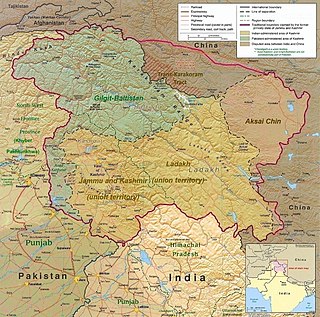
Baltistan, also known as Baltiyul or Little Tibet, is a mountainous region in Gilgit-Baltistan, Pakistan-administered Kashmir. It is located near the Karakoram mountains just south of K2, and borders Gilgit to the west, China's Xinjiang to the north, Ladakh to the southeast, and the Kashmir Valley to the southwest. Its average altitude is over 3,350 metres (10,990 ft).
Wakhi is an Indo-European language in the Eastern Iranian branch of the language family spoken today in Wakhan District, Northern Afghanistan and also in Tajikistan, Northern Pakistan and China.
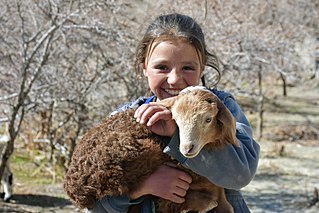
The Wakhi people or the Khik (خیک), are an Iranian ethnic group living in adjacent, remote regions of Afghanistan, Tajikistan, Pakistan and China. They are predominantly centered in Afghanistan's Wakhan Corridor, the northernmost part of Pakistan's Gilgit-Baltistan, the Gorno-Badakhshan region of Tajikistan and the southwestern region of China's Xinjiang. They are native speakers of Wakhi, an Indo-European language of the Iranian branch.

The Karakoram Highway is a 1,300 km (810 mi) national highway which extends from Hasan Abdal in the Punjab province of Pakistan to the Khunjerab Pass in Gilgit-Baltistan, where it crosses into China and becomes China National Highway 314. The highway connects the Pakistani provinces of Punjab and Khyber Pakhtunkhwa plus Gilgit-Baltistan with China's Xinjiang Uyghur Autonomous Region. The highway is a popular tourist attraction and is one of the highest paved roads in the world, passing through the Karakoram mountain range, at 36°51′00″N75°25′40″E at maximum elevation of 4,714 m (15,466 ft) near Khunjerab Pass. Due to its high elevation and the difficult conditions in which it was constructed, it is often referred to as the Eighth Wonder of the World. The highway is also a part of the Asian Highway AH4.
Kashmir mainly refers to the northwestern region of the Indian subcontinent claimed by China, India, and Pakistan.
Balawaristan (Urdu:بلاورستان), meaning the 'country of heights', is a name used by the Gilgit-Baltistan separatists to refer to their region. The term was coined by the Balawaristan National Front in the aftermath of the 1988 Gilgit massacre. But it has its roots in the historical names Bolor or Boloristan, with documented usage in Chinese sources from the 8th century AD. According to the present day activists, 'Balawaristan' includes Chitral, Gilgit, Skardu, Hunza, Nagar, Ishkoman, Punial and Yasin. In addition, the regions of Baltistan and Ladakh are also claimed to be part of Balawaristan by the nationalist parties of Gilgit.

Gilgit-Baltistan, formerly known as the Northern Areas, is a region administered by Pakistan as an administrative territory, and constitutes the northern portion of the larger Kashmir region, which has been the subject of a dispute between India and Pakistan since 1947, and between India and China since somewhat later. It is the northernmost territory administered by Pakistan. It borders Azad Kashmir to the south, the province of Khyber Pakhtunkhwa to the west, the Wakhan Corridor of Afghanistan to the north, the Xinjiang region of China, to the east and northeast, and the Indian-administered union territories Jammu and Kashmir and Ladakh to the southeast.
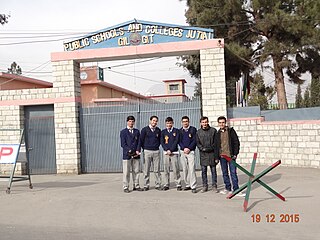
Gilgit-Baltistan Balawaristan (GB) is an area which was affiliated with Pakistan in 1948. There was no educational system at the time. Gradually some of the more ambitions students of GB moved toward different cities in search of a better education. Some of them returned to their home after completion of their education, and started teaching their children, thus making people aware of what it was to be literate. They demanded the government build schools in the region, but their demand was neglected because the region didn't have a representative in the senate or National Assembly (Pakistan). After several years, schools were opened in Gilgit-Baltistan and thus its educational system came into being.

Chief Minister of Gilgit Baltistan (CM) is elected by the Gilgit Baltistan Assembly to serve as the head of the provincial government in Gilgit-Baltistan. The current Chief Minister is Khalid Khurshid.

The Government of Gilgit-Baltistan is the government of the autonomous territory of Gilgit-Baltistan, Pakistan. Its powers and structure are set out in the 2009 Gilgit-Baltistan Empowerment and Self-Governance Order, in which 10 districts come under its authority and jurisdiction. The government includes the cabinet, selected from members the Gilgit–Baltistan Assembly, and the non-political civil staff within each department. The province is governed by a unicameral legislature with the head of government known as the Chief Minister. The Chief Minister, invariably the leader of a political party represented in the Assembly, selects members of the Cabinet. The Chief Minister and Cabinet are thus responsible the functioning of government and are entitled to remain in office so long as it maintains the confidence of the elected Assembly. The head of state of the province is known as the Governor. The terms Government of Gilgit–Baltistan or Gilgit–Baltistan Government are often used in official documents. The seat of government is in Gilgit, thus serving as the capital of the territory.
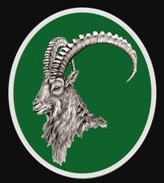
The Gilgit Baltistan Scouts are part of the Paramilitary forces of Pakistan, under the direct control of the Ministry of the Interior of the Pakistan Government. The Scouts are an internal security force with the prime objective to protect northern borders of Pakistan and support Civil Administration in ensuring maintenance of law and order anywhere in Pakistan. The force was formerly known as the Northern Areas Scouts but was renamed to the Gilgit Baltistan Scouts in 2011 due to the imposition of "Empowerment and Self Governance Order" in 2009.
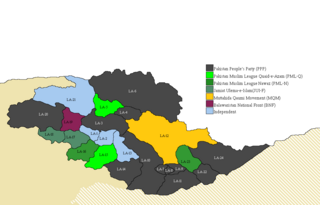
2009 Gilgit-Baltistan Assembly Elections was an election held in the province of Gilgit-Baltistan for the first time to elect the first Assembly of Gilgit-Baltistan. Polling took place in 12 November 2009.

The 2020 Gilgit-Baltistan Assembly elections were held on 15 November 2020. Elections will be held in 24 constituencies, each electing one member to the 3rd Gilgit-Baltistan Legislative Assembly. 330 candidates will contest these elections, either representing one of the political parties of Gilgit-Baltistan or being an independent candidate.
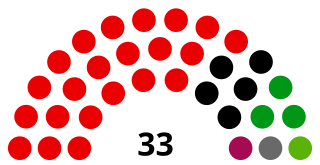
The Gilgit-Baltistan Assembly (GBA) formerly known as Gilgit-Baltistan Legislative Assembly (GBLA) is a 33-seat unicameral house of elected representatives of the people of Gilgit-Baltistan.

The Balawaristan National Front (Naji), more commonly known as the BNF(N), is a minor political party of Gilgit-Baltistan, Pakistan which calls for Gilgit-Baltistan to be given autonomy while still remaining a part of the federation of Pakistan.












